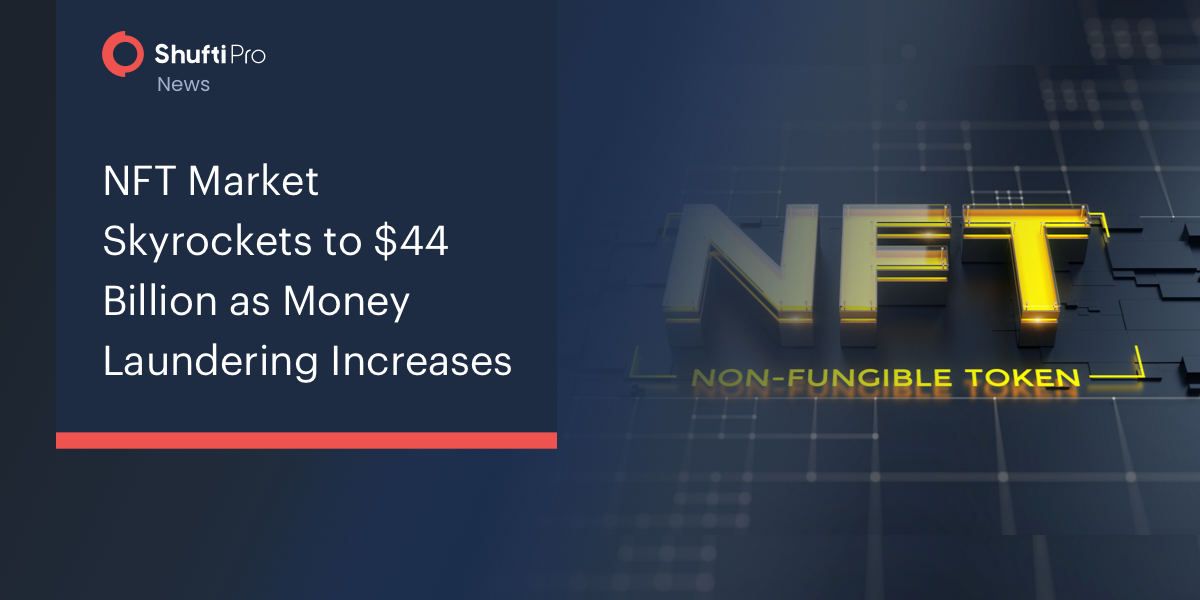NFT Market Skyrockets to $44 Billion as Money Laundering Increases

The non-fungible token (NFT) market value has increased from $106 million in 2020 to $44 billion in 2021. The spike has accounted for an increase in money laundering through the sector.
NFTs are one-of-a-kind crypto assets that allow their owners to authenticate and trade special digital items through blockchain technology. The NFT sector’s rising popularity has provided money launderers a safe route to obscure the origins of their ill-gotten funds.
NFTs can be anything digital like illustrations, GIFs, or videos, and can also be physical items such as stamps or coins. The purchase of NFTs enables financial criminals to remain untraced.
In economic terms, a fungible asset is something that can be interchanged with money easily. For instance, a $10 note can be easily interchanged with two $5 notes. However, in the case of NFTs, the purchaser obtains a certificate that is secured by blockchain technology, making them the owner of that digital asset.
The specific blockchain that holds NFTs is the Ethereum (ETH-USD) blockchain, but they are supported by other blockchains as well. At a given time, there can only be one owner of a non-fungible token.
According to research from Chainalysis, the purchase of NFTs from illicit locations increased significantly in the third quarter of 2021, rising above $1 million worth of cryptocurrency. The value increased further by the end of the year, closing out at just under $1.4 million.
According to the data, an approximate amount of $284,000 worth of cryptocurrency was sent to NFT marketplaces from locations present in sanctions lists.
The research identified NFT wash trading by carrying out an extensive analysis of NFT sales to addresses that were self-financed. It was found that 262 individuals sold NFTs to a self-financed address over 25 times.
Suggested read: NFTs Seek to Implement KYC/AML Standards as Money Laundering Rises

 Explore Now
Explore Now













